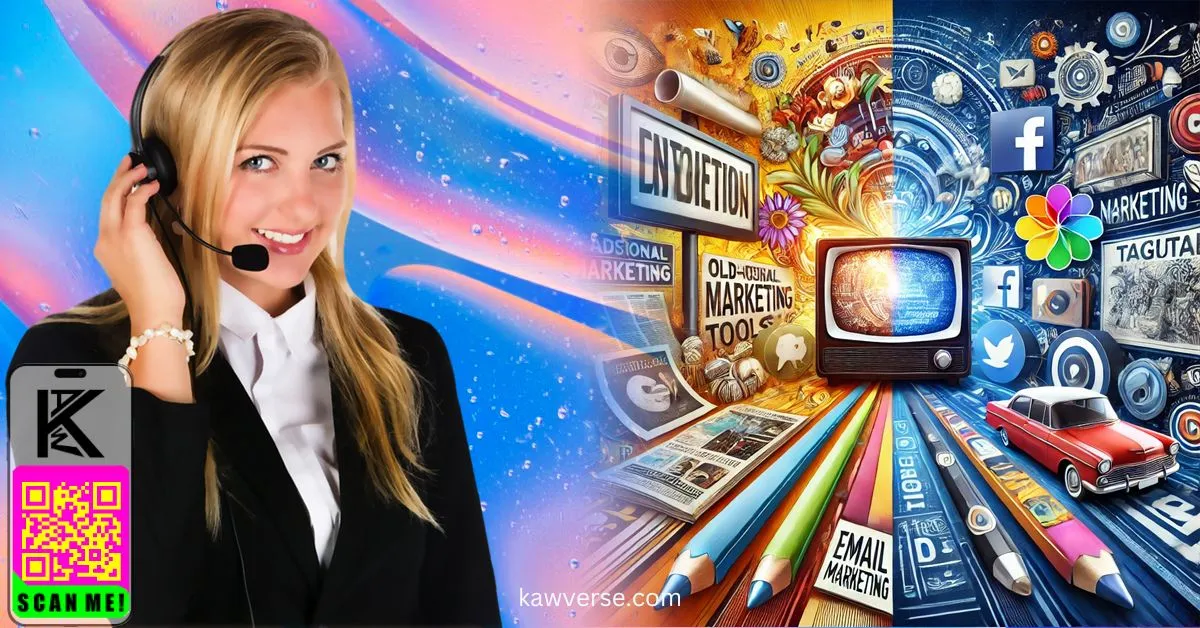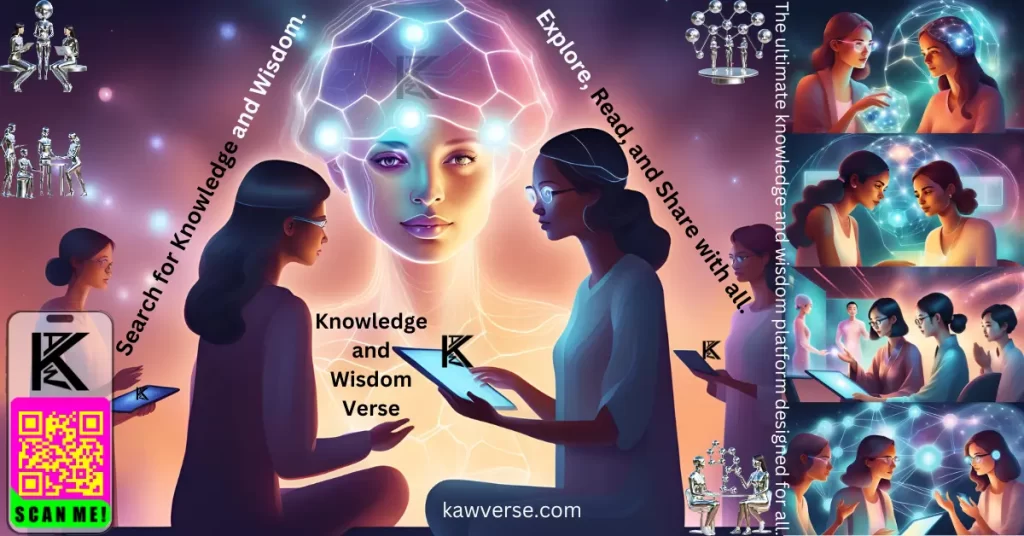Marketing is the backbone of any successful business, serving as the bridge between a company and its customers. In today’s competitive landscape, simply having a great product or service isn’t enough; businesses need to strategically promote what they offer to capture attention, build brand loyalty, and drive sales. From traditional methods like TV ads and billboards to the rapidly growing world of digital marketing, the art of marketing has evolved to meet the ever-changing preferences of consumers. This guide will explore the fundamentals of marketing, its core principles, and how businesses use marketing strategies to thrive in today’s marketplace.
What is Marketing?

Marketing is all about the efforts a business takes to promote and sell its products or services. It involves various strategies to engage customers and convince them to make a purchase. These activities can range from advertising and branding to crafting appealing promotions that catch the attention of potential customers. Marketing helps businesses connect with consumers, other businesses, or organizations.
Key Takeaways on Marketing
- Marketing connects businesses and buyers: It promotes products or services, helping companies reach the right customers and driving purchasing decisions.
- The Four Ps of marketing are essential: Product, price, place, and promotion form the foundation of any effective marketing strategy, ensuring products meet customer needs and are easily accessible.
- Digital marketing enhances convenience: With tools like social media, email campaigns, and search engine marketing, buyers can discover relevant products quickly, leading to a personalized shopping experience.
- Promotions and discounts drive value: Special deals, limited-time offers, and loyalty programs entice buyers, providing value while encouraging repeat purchases.
- Content and social media marketing engage buyers: By offering valuable information and fostering direct interaction with brands, these strategies help buyers make informed decisions and feel connected to the brand.
- Affiliate marketing introduces trusted recommendations: Buyers benefit from discovering products through influencers or third-party sites, often accompanied by exclusive deals.
- Branding builds buyer trust: Strong, consistent branding creates recognition and loyalty, influencing buyer choices, especially in competitive markets.
- Scarcity marketing encourages quick decisions: Limited-time offers or exclusive product releases create urgency, motivating buyers to act fast but also requiring thoughtful purchasing.
- Customer feedback drives improvement: Businesses use feedback to refine their products and marketing strategies, resulting in better future campaigns tailored to buyer preferences.
- Marketing enhances the buyer experience: From personalization to educational content, marketing not only promotes products but also makes the entire purchasing journey smoother and more enjoyable.
Why is Marketing Important?
Marketing is crucial because it’s often the first touchpoint between a company and its potential customers. It educates people about the products, builds brand awareness, and motivates buyers to take action. Without marketing, even the best products or services may go unnoticed. Successful marketing helps shape public perception, builds customer loyalty, and ultimately drives business growth.
The Four Ps of Marketing
To succeed in marketing, businesses focus on the Four Ps—product, price, place, and promotion.
- Product: What you’re selling. Whether it’s a physical good or a service, the product must meet a need or solve a problem.
- Price: What customers are willing to pay for the product. Pricing strategies must consider the competition, production costs, and consumer expectations.
- Place: Where and how the product is distributed. Whether online or in stores, the goal is to make the product easily accessible to your target audience.
- Promotion: How you advertise and communicate the product to your audience. This could include everything from TV ads to social media campaigns.
The Evolution of Marketing
In the past, traditional methods like TV, radio, and print dominated marketing. But today, digital marketing has taken the lead. Companies now use tools like social media, email newsletters, content marketing, and affiliate partnerships to reach customers more effectively and efficiently.
Types of Marketing Strategies
- Traditional Marketing: Billboards, printed materials, direct mail, radio, and TV ads.
- Digital Marketing: Search engine optimization (SEO), social media marketing, email marketing, and content creation like blogs, videos, or infographics.
Benefits of Marketing
Marketing, when done right, can:
- Generate awareness and attract the right audience.
- Provide insight into customer needs and preferences.
- Shape your company’s brand image and reputation.
- Lead to long-lasting customer loyalty and engagement.
- Ultimately drive sales and profitability.
Challenges of Marketing
Marketing isn’t without its challenges. Oversaturated markets, high costs, and no guarantee of success can make it difficult. Additionally, marketing efforts depend on the economy—during tough financial times, consumers may be less likely to spend, no matter how good the campaign.
Buyer-Friendly FAQ on Marketing
1. What is the purpose of marketing?
Marketing serves to connect a business with potential customers by promoting its products or services. It aims to raise awareness, generate interest, and convert interest into purchases, ensuring business growth and customer satisfaction.
2. How does marketing benefit buyers?
Marketing helps buyers by providing them with useful information about products, services, and special offers. It also allows buyers to compare options, discover new products, and find the best deals, making shopping decisions easier and more informed.
3. What are the Four Ps of marketing?
The Four Ps represent the essential components of any marketing strategy:
- Product: What you’re selling to meet customer needs.
- Price: The cost customers pay, reflecting value and competition.
- Place: Where the product is sold and how it’s distributed (in-store, online).
- Promotion: How the product is advertised to attract customers.
4. How does digital marketing affect my buying experience?
Digital marketing provides a personalized and convenient experience. Through targeted ads, email campaigns, and social media, buyers can discover products relevant to their interests and access exclusive deals or promotions quickly and easily.
5. Why are promotions and discounts important in marketing?
Promotions and discounts encourage buyers to make purchases by offering added value or savings. Special deals, limited-time offers, and discounts can lead to significant cost savings for buyers while introducing them to new products.
6. How does social media marketing impact buyers?
Social media marketing allows buyers to interact directly with brands, ask questions, share feedback, and stay updated on new products or sales. It also lets buyers see reviews and recommendations, making purchasing decisions more informed and confident.
7. What is content marketing, and how does it help buyers?
Content marketing involves creating helpful and engaging materials like blogs, videos, and infographics to educate buyers. This content helps buyers understand product benefits, solve problems, and make well-informed purchasing decisions.
8. How does pricing in marketing affect me as a buyer?
Marketing helps set competitive prices that appeal to buyers while ensuring the product’s value. Businesses adjust prices based on competition, demand, and customer expectations, making sure you get the best value for your money.
9. What is affiliate marketing, and how does it benefit me?
Affiliate marketing uses third-party sites or influencers to promote products. Buyers benefit by discovering new products through trusted sources, often with exclusive discounts or special deals.
10. How do email marketing campaigns benefit buyers?
Email marketing keeps buyers informed about special promotions, product launches, and personalized recommendations. It helps buyers stay updated with exclusive offers, discounts, and early access to sales.
11. How does search engine marketing (SEM) improve my shopping experience?
SEM allows businesses to appear prominently in search results when buyers are actively looking for products or services. This makes it easier for buyers to quickly find what they need and compare different options.
12. What is the role of product reviews in marketing?
Product reviews offer real feedback from other buyers, helping you make more confident purchasing decisions. Marketing strategies often encourage reviews to build trust and transparency, so you can evaluate a product before buying.
13. Why do companies use influencers or celebrities in marketing?
Influencers and celebrities help build credibility and trust. When a well-known figure endorses a product, buyers may feel more confident in the product’s quality and effectiveness, which can positively impact purchasing decisions.
14. How do loyalty programs influence my buying behavior?
Loyalty programs reward frequent buyers with points, discounts, or exclusive offers. These programs encourage buyers to return to the same brand for future purchases, often leading to better deals and enhanced customer service.
15. Why do businesses run seasonal or holiday marketing campaigns?
Seasonal campaigns take advantage of specific times when buyers are more likely to shop, such as holidays or sales events like Black Friday. These campaigns often feature limited-time promotions, making it a great time for buyers to find special deals.
16. How does branding influence my purchasing decisions?
Strong branding helps buyers recognize and trust a company. Effective marketing builds a consistent and positive image of a brand, which can influence a buyer’s preference, especially when choosing between similar products.
17. What is personalized marketing, and how does it benefit me?
Personalized marketing tailors offers, ads, and recommendations based on your past behavior and preferences. This makes your shopping experience more relevant and convenient, ensuring you see products that match your interests.
18. How does scarcity marketing (e.g., limited time offers) affect my buying choices?
Scarcity marketing creates a sense of urgency, encouraging buyers to make quicker decisions to avoid missing out. While it can lead to great deals, it’s essential to ensure the product fits your needs before making impulsive purchases.
19. Why do companies use multiple marketing channels (TV, online, in-store)?
Companies use multiple marketing channels to reach buyers wherever they are, ensuring maximum visibility. Whether you see a product online, in a TV ad, or in-store, this consistent exposure helps reinforce your interest and can lead to a purchase.
20. How does customer feedback impact future marketing campaigns?
Customer feedback helps companies improve their products and marketing strategies. By listening to buyers, businesses can refine their offerings, making future campaigns more relevant to your needs and preferences.
This FAQ aims to provide a clear, buyer-focused understanding of how marketing shapes your purchasing experience, making it easier and more enjoyable to find the products and services that best meet your needs.
Conclusion
In essence, marketing is vital to the success of any business. It helps ensure that a company’s products or services reach the right customers at the right time. Despite its complexities and challenges, effective marketing can boost a company’s visibility, build strong relationships with customers, and ultimately contribute to long-term success.


Leave a Reply
You must be logged in to post a comment.